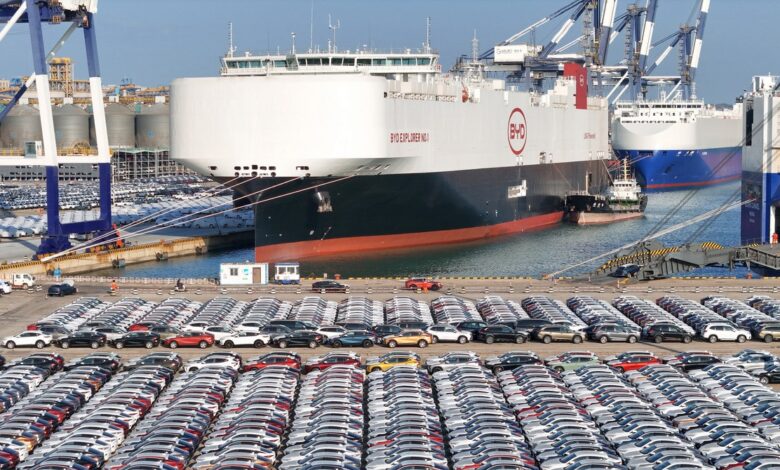China Conquers Mexico’s Auto Market and the US Is Worried

This story was originally appear on WIRED in Spanish and has been translated from Spanish.
China has positioned itself as Major auto supplier in Mexicowith exports reaching $4.6 billion by 2023, according to data from Mexico’s Secretariat of Economy.
Chinese automaker BYD has overtaken Honda and Nissan to position itself as the world’s seventh-largest automaker by vehicle sales in the April-June quarter. The growth was driven by increased demand for its affordable electric vehicles, according to data from automakers and research firm MarkLines.
Company of new car sale up 40 percent year-on-year to 980,000 vehicles this quarter—the same quarter that most major automakers, including Toyota and Volkswagen, saw sales decline. Much of BYD’s growth was driven by overseas sales, which nearly tripled over the past year to 105,000 vehicles. BYD is now considering new car plants in three Mexican states: Durango, Jalisco, and Nuevo Leon.
Foreign investment would be an economic boost for Mexico. The company has said a factory there would create about 10,000 jobs. Tesla competitor, BYD marketing Mini Dolphin This model in Mexico costs about 398,800 pesos—about $21,300—just over half the price of the cheapest Tesla model.
Barred from selling their goods to the United States due to tariffs, Chinese electric vehicle makers have explored other markets to sell their high-tech vehicles. But as Mexico establishes itself as a major market for Chinese electric vehicles, officials in Washington worry that Mexico could be used as a “back door” to access the U.S. market.
That duty-free access is part of the United States-Mexico-Canada Agreement (T-MEC), an updated version of the North American Free Trade Agreement, has eliminated tariffs on many products traded between North American countries since 2018. Under the agreement, if a foreign auto company that builds a vehicle in Canada or Mexico can prove that the materials used were sourced locally, its products can be exported to the United States with virtually no tariffs.
According to official figures, 20 percent of light vehicles sold in Mexico last year were imported from China, or 273,592 vehicles and up 50 percent from 2022. Currently, most of the vehicles imported from China come from Western brands that have established manufacturing plants in the country, such as General Motors, Ford, Chrysler, BMW and Renault.
According to data from Linked Global Solutions, a company that specializes in business between China and Latin American countries, Mexico is the second-largest Chinese auto market in the world, behind only Russia.
A trade war against China
Both the United States and the European Union have escalated their trade war with China, focusing on autos and semiconductor manufacturing, which have been the subject of investigations into predatory practices, tariffs and restrictions. This new geopolitical strategy is prompting Western companies to look for alternatives to moving their factories out of China, a trend known as “nearshoreing.”
Concerned about the potential impact on domestic automakers, the United States has raised tariffs on Chinese-made electric vehicles to 100 percent. Canada is also considering its own tariffs on Chinese-made vehicles.




